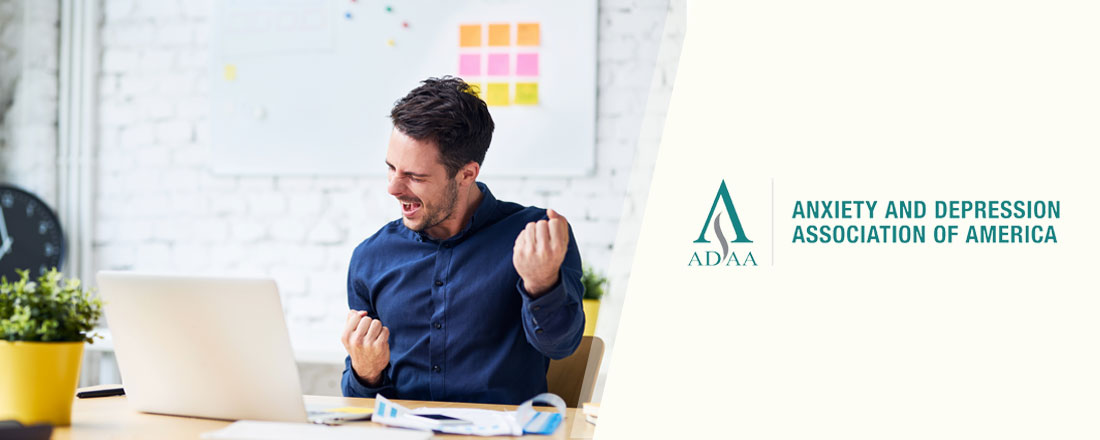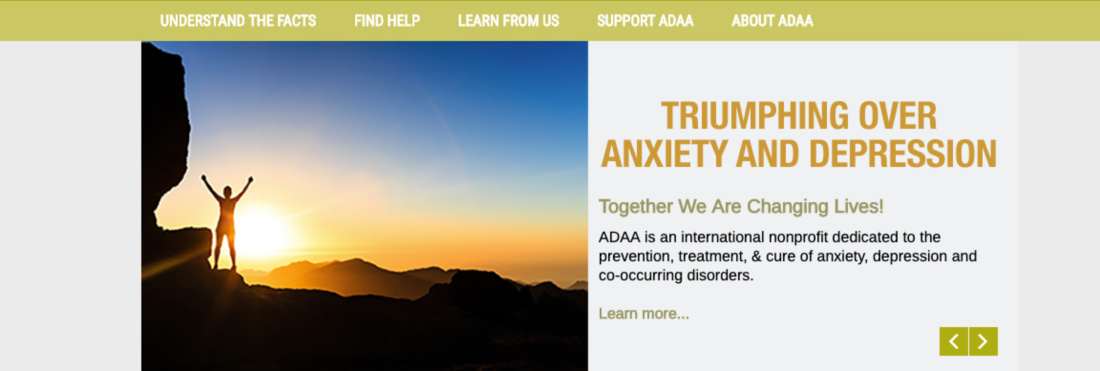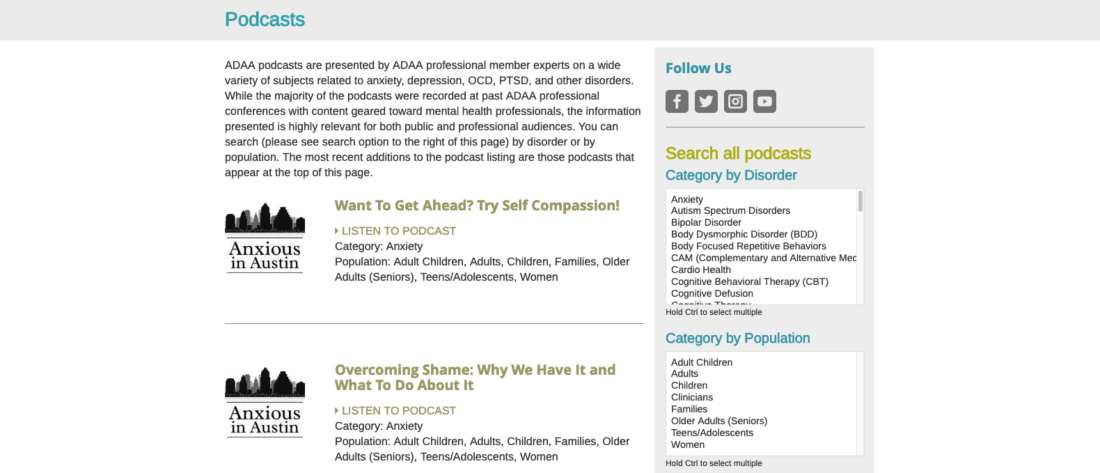
If you’ve found yourself increasingly anxious about your financial situation, you’re not alone. A recent study by Northwestern Mutual, an American financial services organization, found that 54 percent of Americans have experienced financial anxiety, 52 percent have dealt with financial insecurity, and 48 percent have felt financial fear. In fact, money was identified as the survey respondents’ dominant source of stress—with finances even more stressful than relationships and work.

Co-chair of the ADAA’s
Perhaps even more unsettling is the impact financial anxiety can have on one’s life. According to the study, 28 percent of Americans feel depressed at least monthly due to financial anxiety, while 17 percent are depressed even more often. Forty-one percent have had disagreements with their significant other, 45 percent have missed out on social events, and 38 percent have had issues with other family members due to financial anxiety.
Fortunately, there is hope if you’re among them. RewardExpert recently spoke with clinical psychologist Dr. Debra Kissen, co-chair of the ADAA’s (Anxiety and Depression Association of America) public education committee and executive director of Light on Anxiety CBT Treatment Center in Illinois for insight.
Dedicated to Prevention, Treatment and Cure
Founded in 1979, the ADAA is an international non-profit membership organization dedicated to the prevention, treatment and cure of anxiety, depression and associated disorders through education, practice and research. Put simply, the ADAA’s mission is to promote scientific innovation and the discovery of new treatments that will lead to the prevention and cure of anxiety and depression.
Visitors to the ADAA’s website will find extensive information about stress, anxiety, depression, suicide and more as well as data on treatment types, support groups and a directory of therapists
“There is a wealth of information on the website,” Kissen added. “The ADAA really goes out of its way to be innovative in trying out new ways to reach people and train clinicians including webinars, podcasts and Twitter chats.”
Financial Stress and Anxiety Explained
Though we did not discuss the Northwestern Mutual study results specifically, Kissen agreed that financial stress and anxiety are increasingly common in today’s society.
“At the Light on Anxiety CBT Treatment center, we have 20 therapists and see hundreds of people each week,” Kissen noted. “Finances are certainly in the top three stressors in terms of the people we treat, along with relationship anxiety and anxiety due to life changes.”
She went on to explain that money and finances often cause stress because Americans are generally overwhelmed by everything required to manage their lives.

“It’s life management overload,” Kissen continued. “I think people get bogged down in what it takes to manage their finances, handle their credit card debts, and refinance loans when rates change. It’s overwhelming to people and they fall behind or start to avoid it.”
She also noted that social media may play a role. “When people compare their own lives to others on social media, they feel some level of dissatisfaction,” Kissen said. “They might wish they had more money or feel like they should be more successful. You feel more like a loser when you see others accomplishing things that you’re not.”
While Kissen noted that some stress in life is natural and can even be beneficial, a chronic state of stress is not.
“Stress, in theory, is something that fuels you to run from a lion or flee a burning building,” she said. “So, there’s nothing really wrong with stress. But when people are in a chronic state of stress, they may end up overeating, oversleeping or have a problem with substance abuse. They might socially isolate. And that’s not healthy. So, it’s not that stress in and of itself is a bad thing but more how one tends to arrange their life given that stress.”
While stress is a product of the present, anxiety involves a fear of the future.

“Anxiety is focused on the future and is about what could happen or the fear of what might happen,” Kissen said. “Financial anxiety might come from worrying about getting more money into your bank account or wondering how you’re going to pay for your kids to go to college.”
Facing Financial Fear
If you’ve been suffering from financial stress or anxiety, Kissen said it’s important to face your fears if you want to move forward.
“Maybe you’re not opening your mail because you’re afraid to deal with your bills,” Kissen explained. “But you have to face that fear in order to get your finances in order. You might have to go on a budget, spend a lot less money, and put your credit cards away, but whatever you need to do is going to feel a whole lot better when you understand your current status and have a plan.”
She advised finding someone to help you if you’re unable to tackle the task of financial organization on your own.
“You might want to find a financial consultant or even a therapist,” Kissen said. “When we have an individual that is engaged in chronic procrastination because of financial stress, we might have them bring in their stack of bills and open them during the session. We’re not financial experts, but we are experts in facing things that you’re afraid to face.”

If you’re dealing with depression because of financial stress and anxiety, Kissen said therapy and medication can be helpful. She also encouraged changing behaviors in a way that will generate more energy.
“Force yourself to engage in things you get pleasure out of even if you feel hopeless and don’t want to do anything,” Kissen continued. “Don’t wait until you feel like going for a walk or out to lunch with a friend. Just do it. An object in motion stays in motion, and you get more energy by forcing yourself to get things moving.”
As your energy level improves, you’ll find it easier to face financial fears and the tasks you’ve probably been avoiding.
“You don’t have to figure everything out at once,” Kissen said. “Even if you just open one bill each day, accomplishing a tiny measurable goal is certainly better than doing nothing.”
For more information about the ADAA or help finding anxiety or depression treatment near you, visit adaa.org.
